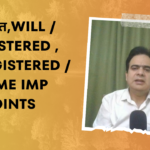In a significant ruling, the Bombay High Court on July 19, 2024, addressed the critical issue of educational access for children from disadvantaged groups. The case, Aswini Jitendra Kable v. State of Maharashtra, revolved around the Maharashtra Right of Children to Free and Compulsory Education (Amendment) Rules, 2024. These amendments had stirred considerable controversy and legal challenges, as they appeared to restrict the availability of free education, a fundamental right under the Indian Constitution.
The Core Issue
The Amendment Rules introduced a proviso to Rule 4(5) of the Maharashtra Right of Children to Free and Compulsory Education Rules, 2011. This proviso effectively barred the identification of private unaided schools for the mandatory 25% reservation of seats for children from disadvantaged groups and weaker sections if government or aided schools were within a 1 km radius. Moreover, the amendment added a proviso to Rule 8(2), disqualifying these private schools from reimbursement under Section 12(2) of the Right of Children to Free and Compulsory Education Act, 2009 (RTE Act).
The petitioners, through various Public Interest Litigations (PILs), argued that these amendments infringed upon the fundamental right to free education enshrined in Article 21-A of the Constitution. They contended that the rules were arbitrary, unreasonable, and contradicted the core objectives of the RTE Act, particularly Section 12(1)(c), which mandates that private unaided schools reserve 25% of their seats for children from disadvantaged groups.
Key Issues Examined by the Court
- Fundamental Right to Education: Whether the Amendment Rules infringed upon the fundamental right to free and compulsory education under Article 21-A of the Constitution.
- Arbitrariness and Reasonableness: Whether the Amendment Rules were arbitrary and unreasonable, thereby undermining the objectives of the RTE Act.
- Consistency with RTE Act: Whether the conditions imposed by the Amendment Rules were consistent with the provisions of the RTE Act, particularly Section 12.
Arguments Presented
Petitioners’ Arguments:
- The Amendment Rules curtailed the fundamental right to education as guaranteed under Article 21-A.
- The rules were arbitrary and unreasonable, undermining the RTE Act’s objectives.
- The introduction of a distance criterion for admissions contradicted Section 12(1)(c) of the RTE Act, which is unconditional and does not depend on the proximity of government or aided schools.
Respondents’ Arguments:
- The State Government asserted its right to make rules under Section 38 of the RTE Act.
- The Amendment Rules did not violate the Constitution or the RTE Act and aimed to balance the availability of educational resources.
- The conditions imposed were reasonable and intended to manage the educational landscape effectively.
Judgment and Implications
The Bombay High Court ruled in favor of the petitioners, finding that the Amendment Rules infringed upon the fundamental right to free education under Article 21-A. The Court emphasized that the conditions imposed by the Amendment Rules were inconsistent with the unconditional mandate of Section 12(1)(c) of the RTE Act. It declared the rules arbitrary and unreasonable, thus unable to withstand judicial scrutiny. Consequently, the Amendment Rules were struck down.
Conclusion
This judgment underscores the importance of adhering to the provisions of the RTE Act and protecting the right to education for all children, especially those from disadvantaged backgrounds. It reaffirms that any legislative or regulatory changes in the education sector must align with the fundamental rights guaranteed by the Constitution and the legislative intent of the RTE Act.
For parents, educators, and policymakers, this decision serves as a critical reminder of the need to prioritize children’s access to quality education, regardless of their socio-economic status. As we move forward, it is crucial to ensure that educational policies and rules are designed and implemented in a manner that genuinely enhances access and equity in education.


